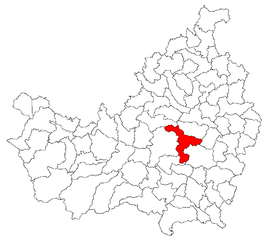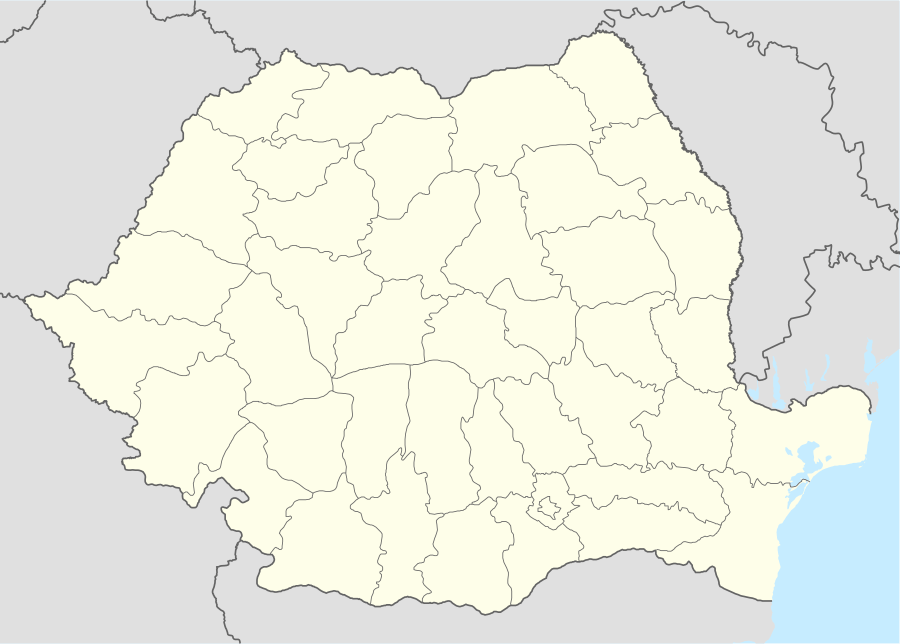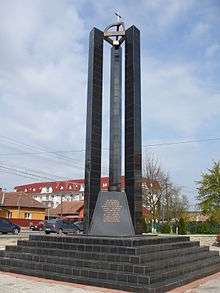Apahida
Apahida (Hungarian: Apahida; German: Bruckendorf; Latin: Pons Abbatis) is a commune in Cluj County, Transylvania, Romania. It is composed of eight villages: Apahida, Bodrog (Bodrog), Câmpenești, Corpadea (Kolozskorpád), Dezmir (Dezmér), Pata (Kolozspata), Sânnicoară (Szamosszentmiklós) and Sub Coastă (Telekfarka).
Apahida | |
|---|---|
 Location in Cluj County | |
 Apahida Location in Romania | |
| Coordinates: 46°48′28″N 23°44′24″E | |
| Country | |
| County | Cluj |
| Established | 1263 |
| Subdivisions | Apahida, Bodrog, Câmpeneşti, Corpadea, Dezmir, Pata, Sânnicoară, Sub Coastă |
| Government | |
| • Mayor | Grigore Fati (PSD) |
| Area | 106.02 km2 (40.93 sq mi) |
| Population (2011)[1] | 10,685 |
| • Density | 100/km2 (260/sq mi) |
| Time zone | EET/EEST (UTC+2/+3) |
| Postal code | 407035 |
| Area code | +40 x64 |
| Vehicle reg. | CJ |
| Website | www |
In 1889 and 1968 two rich archaeological treasures were discovered here. Apahida is an important road junction in Cluj County, as it links Cluj County with Mureș County, through DN16. It also provides quick access (approximately 20 minutes) from Cluj-Napoca to Băile Cojocna, famous for its salt waters and their curing properties.
Demographics
According to the census from 2002 there was a total population of 8,785 people living in this town. Of this population, 91.17% are ethnic Romanians, 4.61% are ethnic Hungarians and 4.13% ethnic Romani.[2]
People
Notes
- "Populaţia stabilă pe judeţe, municipii, oraşe şi localităti componenete la RPL_2011" (in Romanian). National Institute of Statistics. Retrieved 4 February 2014.
- http://www.edrc.ro/recensamant.jsp?regiune_id=2140&judet_id=2295&localitate_id=2305

